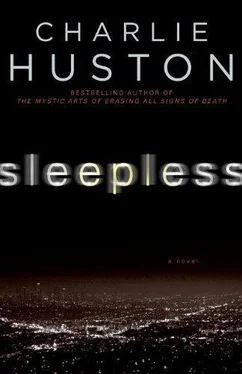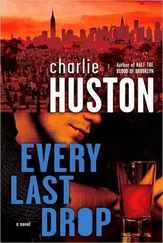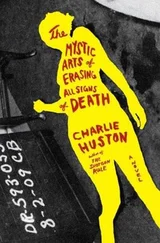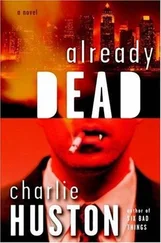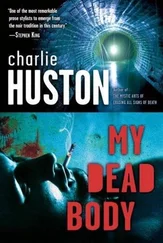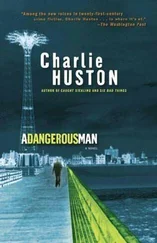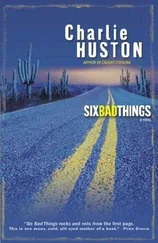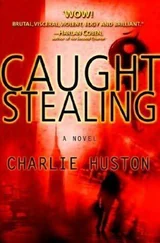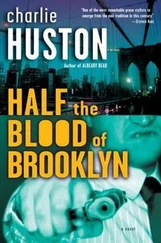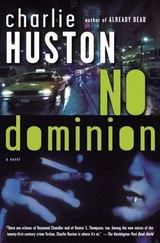“And I need for her to be someplace safe. Until I come back for her.”
Chizu looked at my hand, so close to her person, and laid her four fingers over it.
“Yes.”
Omaha reached up and slapped at our hands, laughing, somehow comfortable under the touch of killers.
Park needed to protect his daughter in a world changing. He could only try to save the one he knew. Or slow its demise. I knew he would pursue justice, but within the limits of the law, however irrelevant it might have become.
It would never occur to him to simply kill both Afronzos.
I was of another mind.
Afrono’s security force had taken some recent losses. Eleven in all. Even allowing for extravagance, it was hard to imagine that Afronzo Senior employed more than fifteen to twenty former Israeli special forces. He might have many more sport-coated security guards, but they would be more suited to dealing with mail checks and property patrols than with covert terminations. Shooters, perhaps, but not killers. And any force that has recently had its numbers significantly whittled by a supposedly inferior opponent will suffer from a measurable loss of morale. Nonetheless, I’d need more than a great deal of luck.
My legs hurt. I’d have liked to have driven the STS up to the front door, but the Afronzos knew who I was. Even arriving in a hundred-thousand-dollar car I would not have been led into the patriarch’s presence. Neither the team they had sent to my house nor the one sent to Park’s had reported back. Whether or not additional men had been sent to investigate, they knew something was, at the very least, amiss. I’d crossed town twice on my adaptive ID. Once going south to Culver City and again heading north to Century City. Enough hours had passed for those journeys to have been logged any number of places. They must now know I lived.
Some camouflage was lent on my current journey by its being accomplished under the auspices of a Thousand Storks pass. It earned a sneer from the Guards, but to anyone looking for me via my NID, it would appear that I’d not left Century City since I arrived there in the morning. Still, a frontal approach would have required a vehicle more tanklike even than the Cadillac.
The Bel Air residents had been among the first to entrench their neighborhood, having fought a short but intense battle with the L.A. City Council over their right to do so. All streets entering off North Sepulveda and North Beverly Glen had been sealed by the Thousand Storks contractors that provided security for the entire community. Even along Sunset the access streets were closed; only the Bellagio entrance was still open. The decorative white stucco and black iron gates had been bolstered with more practical concrete barriers. A short maze of them meant to discourage any car bombers who might negotiate the thicket of spherical bollards that dotted the approach from the intersection. Patrolled by both Thousand Storks and dozens of private family security forces, there was at least one charity tennis tournament taking place there when I passed through the gate unhindered, as well as a wedding reception at the Hotel Bel Air, and a dog show at the country club.
I crossed a small property that I’d chosen because the Thousand Storks detail sheet reported it as being unoccupied, protected by only an alarm system and the TS patrols. From inside the tree line at the rear of the property I spent thirty minutes watching the Afronzo grounds beyond. I saw a single foot patrol. A man wearing a blue windbreaker rather than the expected blazer. He carried a flashlight that he played over the ground in front of him. I’d worried there might be dogs and was grateful there were not. Dogs are difficult. Small, fast targets; it can take up to three shots to hit one with small arms when they charge head on.
As soon as the man passed, I walked out of the trees, not at all steady on my legs, crossed the grass that looked no worse for the drought most people suffered the world over, went up to the lighted window of the guest cottage, peered through to see a man within a few years of my own age seated in an imitation Colonial chair, a bottle of overpriced cognac at hand, a book facedown in his lap, staring into the brown liquor in his snifter. I fired three shots. He was profile to me, so I concentrated fire on his head rather than his chest. Three bullets generally guarantee nothing flukish can happen. Odd deflections caused by a pane of glass, ricochets off the curve of the skull, bullets passing through areas of the brain that are used only for monitoring activity in the appendix, are all made allowable by the presence of the second and third bullets. Such things do not happen in threes. The gun was a silenced HK Mark 23.45 from my travel kit. Three bullets in the head from that size weapon meant death. Satisfied, I headed for the main house.
It took only slight reflection to surmise where I might find Afronzo the younger. A conical tower was affixed to the back of the house, an architectural feature that suited his tastes as I had inferred them.
There was an exceptional mechanic’s garage to service the fleet of luxury vehicles parked in the roundabout at the rear below the tower. One of the roll-up doors was raised three feet. Park’s Subaru was inside, doors open, contents strewn, the hollow spare on the ground, empty. I wormed under and found the inner door that led to a laundry, thence to a kitchen, to a supplementary dining room, and a hall that ended at a curl of stairs.
Imelda and Magda were at the top. Sitting on a refinished church pew cushioned in gold velvet, outside a single door. Magda held a BlackBerry where they could both see the screen.
Imelda had a hand over her mouth.
“Oh, my God. You didn’t tell me he was that nasty.”
Magda clicked a button.
“Oh, yeah. Read this one.”
“Oh. My. God. Is he?”
Magda was nodding.
“He totally backs it up. And he likes to send pics, too.”
“Show me, show me.”
Both had split the Velcro seams on their corset-style body armor, wearing it peeled open so they could bend to sit.
I shot Imelda in the heart. Magda flinched at the blood, causing her to move the BlackBerry, giving me an unobstructed shot at her heart. I took it. I closed distance and shot them each once more, head shots.
The door was unlocked.
The room on the other side covered 270 degrees of the tower’s circumference, windows running the outer wall. Cager apparently had used the same designer as he had at Denizone. A postapocalypse medieval revival.
He was sitting in an imitation Eames lounge chair that had been made with oxidized copper rather than plywood. His right hand was fitted into the ergonomic contours of a glossy black gaming hub. His other hand held his phone, thumb flicking over the keys as he occasionally stole glances away from the wall-mounted LCD display to read the messages constantly announcing themselves with the opening note of the theme from 2001: A Space Odyssey. On the LCD, an elegant figure in an absurdly long windblown black cape scampered and leaped on a plane of subtle geometrics, responding to the slight movements of his fingers and palm on the hub. It took me a moment to realize that his character was dancing, re-creating Cyd Charisse’s dream ballet with the wind in Singing in the Rain.
On the floor next to his chair was a pile of several objects. The travel drive. A journal. The backup thumb drive Park had worn around his neck. The disk I’d given him with the recording of the mass murder at the gold farm. And his father’s watch.
I closed the door firmly.
He didn’t look up.
“What is it?”
I moved into his peripheral vision.
“I need to know what happened to Officer Parker Haas.”
He looked up.
“You’re that guy.”
Читать дальше
